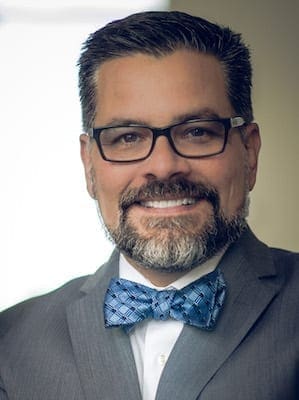The divine right of kings asserts that the ruler of a nation derives authority not from the will of the governed but from God.
While the concept is present in earlier writings, it emerged as a prominent theory of governance in 16th-century Europe when monarchs sought to control both church and state.
King Henry VIII’s abandonment of papal authority to establish his own church, the Church of England, exemplifies the theory.
Placing himself as head of the Anglican church, Henry consolidated power merging quite literally church and state.
While the modern concept of separation of church and state did not yet exist, a slight separation could be seen through the pope’s rule over Christendom with kings ruling over their nation-states.
Therefore, when Henry VIII broke away from the pope and formed his own church, in his own mind and the minds of most of his citizens, he ruled both church and state.
He even took upon himself the title, “Supreme Head of the Church of England.”
Of course, the only way possible for a human to rule both would have to be if God ordained it so. Thus, the theory of divine rights of kings began to spread throughout Europe.
According to Britannica.com, “The bishop Jacques-Bénigne Bossuet (1627-1704), one of the principal French theorists of divine right, asserted that the king’s person and authority were sacred; that his power was modeled on that of a father’s and was absolute, deriving from God; and that he was governed by reason (i.e., custom and precedent).”
Of course, any student of history can offer examples of kings making decisions based on other motivations other than reason.
However, believing their actions were ordained by God, they acted with absolutism and with very little fear of criticism and contradiction.
In our day, the divine right of kings is being repackaged by politicians attempting to advocate for God’s endorsement upon their policies and candidates. It could be retitled the Divine Right of Politicians.
Recently, Energy Secretary Rick Perry proposed that President Donald J. Trump was God’s “Chosen One.”
To support his claim, Perry appealed to the King David theory, which was made infamous when Jeff Sharlett published his book, “The Family” (also a Netflix docudrama).
The theory claims that God ordains kings and politicians to achieve God’s purpose in this world, even while knowing they are not perfect.
Perry offered this brief synopsis of the theory: “God’s used imperfect people all through history. King David wasn’t perfect. Saul wasn’t perfect. Solomon wasn’t perfect.”
Perry and others like him are projecting an ancient biblical understanding upon present-day politicians.
To his credit, Perry even claimed that President Obama was “chosen” by God, even though Perry’s criticisms of the former president make this assertion less than convincing.
Former White House Press Secretary Sarah Huckabee Sanders offered similar logic when speaking about a bid to be Arkansas governor: “There are two types of people who run for office, people that are called and people that just want to be a senator or governor. I feel like I’ve been called.”
While Huckabee Sanders’ comments seem genuine and noble, there is a real problem when politicians fuse such lofty language with their candidacies, elections and political convictions.
With these recent events before us, let’s examine the dangers in bestowing messianic titles on politicians and offering divine endorsements of their political careers.
- As a Christian, there can only be a single “Chosen One” of God. There has never been, nor will there ever be, a greater authority for Christians than the person of Jesus Christ. Placing kings and politicians on equal level with the Messiah would seem to violate the first and second commandments (Exodus 20). Political leaders, while used by God, are not “chosen” by God.
- If politicians and citizens want to look for those favored by God, then they need to look no further than the people Jesus lifted up as chosen by God: the poor, the sick, the marginalized, the outcasts, the sinners and so on. Jesus lived by the ideal of God turning the world upside down, as in, “The first will be last and the last will be first” (Mathew 19:30).
- In a constitutional democracy like the U.S., leaders are elected by the people. Again, this is not to say that God does not work through elected officials, but the U.S. Constitution clearly states that religion should not be a basis for the election of leaders, nor should it play a direct role in governing the citizenry (see the First Amendment).
- When politicians use such lofty language as being “called” by God to run for office, they immediately create a crisis among voters. Perhaps they do not mean to do so, because many people feel called to achieve goals in life. However, claiming a divine calling can be problematic. For example, what if a citizen happens to disagree with the politician’s policies? Does this mean the voter is disagreeing with God? Politicians need to be clear that while they may feel a calling to run for office, it does not mean they are God’s “chosen” candidate for the position.
- If politicians were truly seeking the ideals of God for their policies and governance, then our government would look quite different than any government that has ever existed on the earth. Instead of unrestricted capitalism, propensity for war and capitulation to the powerful patriarchy, our society would genuinely value the poor, seek peace and strive for equality.
As the evidence suggests, the divine right of kings and politicians is dangerous for both our faith and democracy.
In 1611, Thomas Helwys argued that a human’s religion was between an individual and God.
Ruling authorities should concentrate on civil matters, while individuals should be guided by their consciences in matters of faith and practice.
Helwys wrote, “For men’s religion to God is between God and themselves. The king shall not answer for it. Neither may the king be judge between God and man. Let them be heretics, Turks, Jews or whatsoever it appertains not to the earthly power to punish them in the least measure. This is made evident by our lord the king by the scriptures.”
In closing, let us remember why the founding generation in our nation sought to protect the separation of church and state.
After experiencing the dangers of the divine right of kings in Europe, the Founders built legal arguments to protect both church and state, elevating a barrier between the two.
James Madison, the father of the Constitution, wrote in 1803, “The purpose of separation of church and state is to keep forever from these shores the ceaseless strife that has soaked the soil of Europe in blood for centuries.”
As we witness the rise of people asserting a divine right of politicians, let those dedicated to King Jesus and those loving the freedom of liberal democracy rise up to declare the dangers of earthly “chosen” ones, especially those who bear false witness unrepentantly.
Let God continue to offer providential guidance over the history of humanity, while humanity continues to exercise their freedom bestowed upon them by their Creator.


